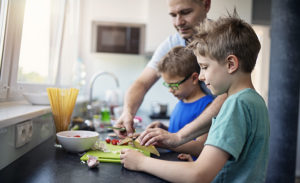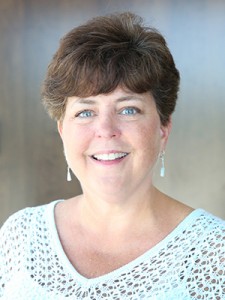Baptist and Reflector
 FRANKLIN — With children staying home from school and activities, keeping them in a routine is critical, agree Tennessee Baptist Mission Board childhood specialists Donna Blaydes and Vicki Hulsey.
FRANKLIN — With children staying home from school and activities, keeping them in a routine is critical, agree Tennessee Baptist Mission Board childhood specialists Donna Blaydes and Vicki Hulsey.
Blaydes suggested that families establish and stick to a routine.
“Routine is an important part of a child’s daily life,” she observed. “During this time when a child’s life has been temporarily disrupted, it is important to establish a new routine for your family,” she said.
Continue as many of the regular routines as possible — regular mealtimes and bedtimes, she said. “Then add to your daily schedule specific times for things like family worship, going outside for some exercise, cooking a meal together, family game time and movie time. Be creative,” Blaydes said.
Hulsey agreed. “Keeping a regular schedule can help children to feel safe,” she said.
She also cautioned families to limit their children’s access to television news. Having the news on throughout the day “can cause children to feel they are in danger. Reassure children that they are not likely to get sick and that most people who have the virus don’t get very sick.”
One of the best ways to keep children safe is to practice regular handwashing, she said. “Consider making handwashing fun for younger children by teaching them to sing a familiar song as they wash their hands,” Hulsey suggested.
Hulsey observed that children tend to get “bored while not being able to be with their friends at school, sports, church or their friends in the neighborhood. Parents can share with their children that it is important for people to stay apart in order to help keep everyone safe and healthy, she noted.
Blaydes agreed. “Talk with your kids. They are hearing so much information and they need help in processing it. Ask them what they know or what they have heard,” she suggested.
“By opening up lines of communication, you can correct misinformation they have received and you can share age-appropriate truths,” Blaydes said.
Hulsey suggested that parents listen carefully when kids ask questions and to answer, being careful not to give more information than the child is asking for or is ready for.
“Encourage children to express their feelings, always responding to their questions in an age appropriate manner,” she said.
Hulsey added that avoiding face to face contact with others doesn’t mean children cannot have interaction with their friends.
“With proper supervision, children could talk and play with friends through outlets such as Facetime and Zoom,” Hulsey suggested.
“Some children’s ministers are even creating opportunities to connect virtually through activities like “home scavenger hunts” where children compete to see who finds the most items in a specified amount of time,” she added.


